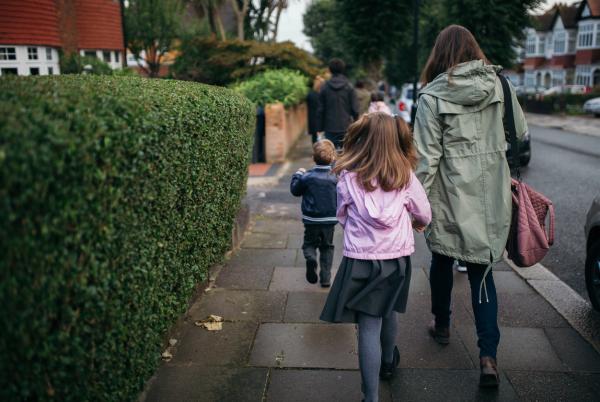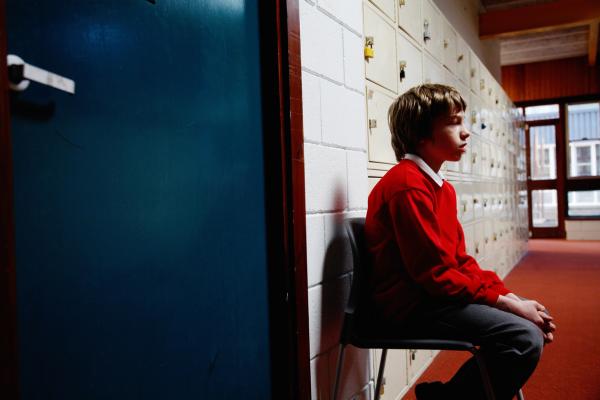Find out if you could be a foster carer
In a few simple questions, you’ll know if you’re suitable to apply to become a foster carer.
Foster children want the same things in life as nearly all children: success at school, a good job, a happy family and children. School and education are very important to them as a first step to achieving these ambitions.
Coming into foster care can be a very difficult experience for children. They may be upset about leaving their family or have spent time living in a children’s home and this may make it difficult for them to settle with you. Given time and support children generally settle into their foster placements, however, because the children might have experienced a great deal of upheaval in their lives, they will probably display more challenging behaviour than children without the same histories. As a foster carer, you need to have the patience and understanding to support children in addressing these problems and this may not be an easy task!
Nearly all children who need foster care will have some school problems. To help with this, they need stable placements with carers who value and support education.
The Government is reforming the system for supporting children and young people with special educational needs (SEN) in England, these changes won’t take effect until September 2014. Until then, the existing systems, the SEN Code of Practice and Education Act 1996 and Special Educational Needs and Disability Act 2001 remain law.

All schools must have a published policy for meeting special educational needs. Schools must also have a named teacher who acts as the Special Educational Needs Co-ordinator (SENCO). They have a duty to identify and make provision for meeting the needs of pupils who are having difficulties with their learning and/or behaviour.
If your foster child has significant difficulties, the school should implement an Individual Education Plan (IEP). This should be reviewed termly by the school. If the child is not making progress, the school may seek advice from external professionals. If concern about your child’s progress continues, the school may consider making a request to the Local Authority for a statutory assessment of SEN. This process may lead to a statement of SEN being issued by the Local Authority where the child lives.
A statement of special educational needs (SEN) is a legal document that describes the child’s special needs and sets out the type of support they need to help them make progress at school or pre-school.
Local education authorities must find a free school place for all children who are ‘of compulsory school age’. It must also find a school or sixth form college place for young people aged 16 to 19 who want one. If a child of compulsory school age can’t receive education at school, the local education authority has a duty to provide suitable education in some other way, for example, home tuition until a school place can be identified. The duty of the local education authority to provide full-time education applies to all pupils.
Whenever a child is sent home because of their behaviour, even for a short time, this must be recorded as an exclusion. The school shouldn’t ask you to take your child home just to ‘cool off’ after an incident, or because there is no adult support available. This is an unofficial exclusion, which is illegal, even if you agree to it.
Formal exclusion is the only legal method of removal. Informal or unofficial exclusions are illegal – what does that mean? When a pupil is sent home for disciplinary reasons for part of a school day and action hasn’t been taken to exclude the pupil, the school is breaking the law.
The relevant regulations do not state a minimum length of exclusion. In every instance where a pupil is sent home for disciplinary reasons, Headteachers must formally record this as an exclusion. Otherwise, they must keep your child at school and provide them with a suitable full-time education suitable to their age, aptitude, ability and any special educational needs that they may have.
Sometimes a part-time timetable can be helpful, for example, to ease a pupil back into school after a long absence. This should only be done with your agreement. The school should discuss with you when the arrangement will be reconsidered and when your child can return to school full-time. A part-time timetable should be to help your child. It should not be put in place because the school does not have enough support. Unless they are ill, your child should be in school for the full school day, like other pupils of their age.

Exclusion should always be a last resort and the school should take into account a pupil’s SEN or disability if this was a factor in the exclusion. You should also be told how to challenge the exclusion if you want to. Exclusions can start the same day but the school can’t make you collect your child straight away.
Government guidance says that your child should receive work from the school, sufficient to their age, ability and aptitude and any special educational needs that they may have, for the first five days of the exclusion and the school should arrange for it to be marked. If you haven’t received any work get in touch with the school and request some.
The Local Authority (LA) must provide suitable full-time education for your child from the 6th school day of a permanent exclusion. Full time means between 21 and 25 hours a week, depending on the age of the child. For looked after children, schools and LAs should arrange full-time educational provision from the first day of a permanent exclusion.
We have compiled a list of link resources of places where you can go for help and extra resources: